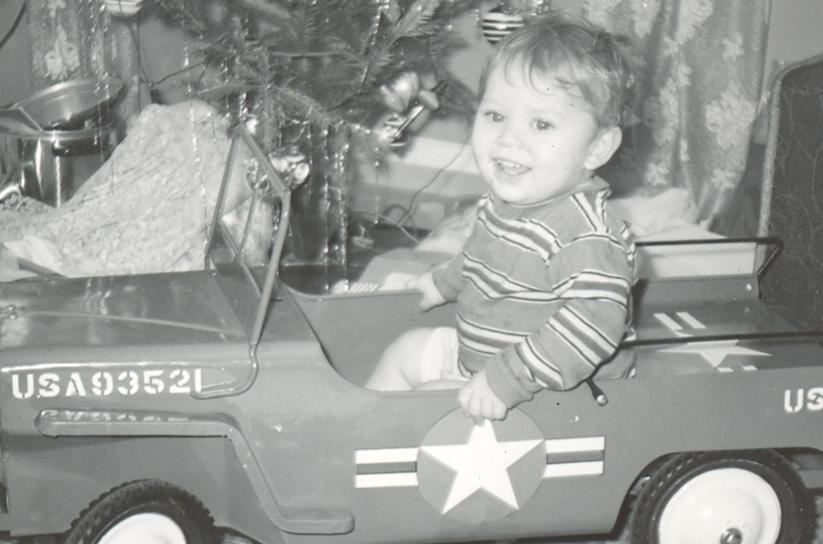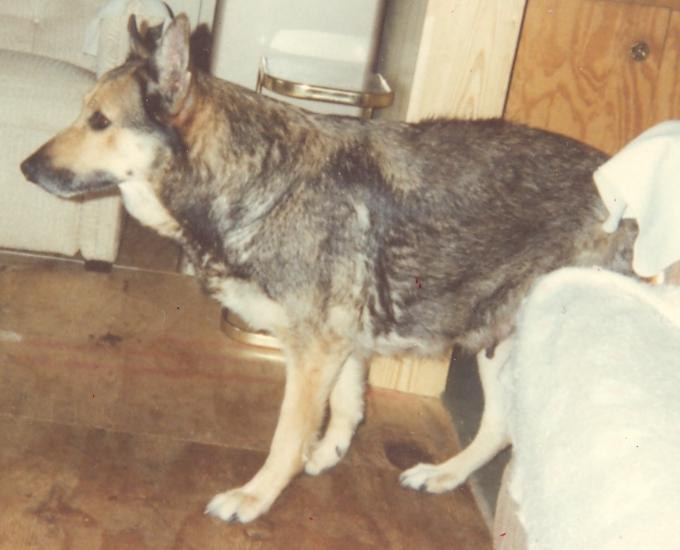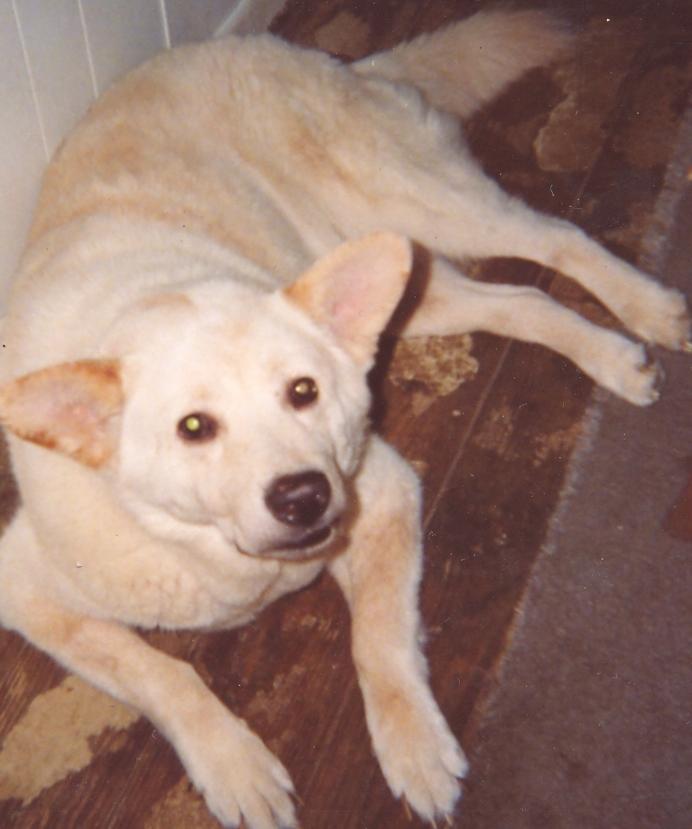Audria Ann Barrera (nee Bouck)


|
|
Audria Ann Barrera was born on July 5th 1937 in Schenectady, New York. Her father Ruben Bouck was a cop, and a very gentle caring one according to her. Her father would work full time, take care of the family, he had a garage fixing cars, and take still took care of the farm. Her family was of working class but Audie, which she is called by friends, still found time to receive her education. She went to, in her words, a one room school with all 8 grades in one class. She graduated from ScotiaHigh School in the summer of 1952. With Robert Rice she had her first son Robert (Bobby) Rice Jr. When she got pregnant with her first son she was forced by her father in to what she called a shot gun wedding. After she had her child she decided that she wanted to pursue her education. In the fall of 1952 she enrolled in Schenectady Community College with the hopes of becoming a nurse something she wanted to do her whole life. But she had dropped out after two years from the stress of having to help with the kids. After she dropped out she got her first job as an aid at a nursing home. When her children became teenagers she decided that she wanted to leave New York and start a new life without her now ex-husband. So she drove to Texas in her first car a 1960 Chevy Impala convertible similar to this one. She moved to Texas in the mid 70's to a small town called George West, Texas and years later moved to San Antonio and has since lived here. She got a job as a waitress and started her new life. She re-married to Jacinto Barrera and moved to San Antonio and got a job at Bobby's café where she worked for several years. Her son Robert fought in the Vietnam War. She does not remember the exact date when he went to war, but she did say that it had to have been right in the middle. Audie is now retired and enjoys watching movies and playing with her 27 animals. When my mother and father moved to San Antonio in the late 80's they moved right across the street from her. She and my mother became instant friends and Audie babysit me through my whole childhood. Audie was a big part of my life when I was a young child and has been almost like a grandmother to me.
How did you learn he was going to go?
He told me. Back then kids thought it was their duty.
What was your son doing before the war? Before the military?
He was in to welding.

What branch of military was he in?
Army
Was he drafted?
No, volunteered.
How did you feel when you realized that he was going to go?
Like crap… (Light chuckle)
When you learned he was going to war did you start paying more attention to the war? Watching it on TV? Reading the paper?
Not until he got in to it. Boot camp didn't bother me and he would come home on boot camp and all. It wasn't until he got in it that I got upset.
Was there a lot of time that you wanted your son to come home?
All the time. I don't think there was any special time. It's just… he would write letters about what was going on. Well as much as they were allowed to write.
Would the letters make you fear for his life?
Ya! Like kids coming at him with bombs! Wired! It was scary.
What did you remember most about the letters?
When he shot that kid. He was really torn up, it damn near killed him. And till this day he drinks and when he drinks the first thing he cries about is the little kid he shot.
What did he tell you about that? The situation?
Well that the kid was coming at him and that they could see the wires and stuff and they didn't want to shoot but it was a case of shoot or be killed. It's not the case of wanting to do it. The letters were just to let you know that it was rough and they had to kill innocent people and guilty people.

Did you write letters back to him?
Yes. I wrote him all the time. I'd tell him jokes or silly things that he could get a laugh at or tell his friends. You know…just silly stuff.
How did you feel when it was over and he was going to come home?
Happy!
He wrote you that he was going to come home?
No not until he was stateside and then he called and said that they were going to ship him home.

How did he change when came home?
He changed from a fun loving kid to an old man. Somebody caring the weight of the world on their shoulders.
Was it that he couldn't do anything that he used to do?
He could do everything that he used to but…after what he seen the things that happened over there and killing the kid it made an old man out of him. He didn't get joy from working on cars and fiddling around before he went into the service. He changed a lot.
How do you think that changed you?
It changed me at first, I cried a lot. I figured one of us had to be the tough guy so when he'd get drunk I'd just tell him he was a fool and he wasn't the only one to do those things and that he couldn't carry it through the rest of his life. But it didn't do any good… I mean any kid, any kid facing that kind of garbage it's… the only word for it is it's HELL because the villages would be uhh… the people in the villages would know that, well I call them the bad guys I wouldn't know what you'd call them, but they (Villagers) were threatened. If they didn't do what they were told to do they would die anyway, so they didn't have a choice to go from the good to the bad.
What were your feelings after the war ended?
I think war is a waste. I thinks it's a waste now what's going on. They don't want us there! Why are we there?! Were there and our kids are getting killed, but they're not going to change their government like the United Stated they don't want it. They don't want their women to act like our women in the United States. But where still over there spending all that money and killing all these boys. For what? Every country should do what they want to do. If they want to be under a rough rule than do it! Just leave us out of it.

How did all this change your family?
I thought maybe the others would try and go. But the others no, they weren't interested.
Did your son ever talk about what went on over there?
Only when he drank. The rest of the time he just thought about it I guess.
What's your thought about him now?
It's really sad how they treat the vets. They don't want to kill nobody they have to protect themselves like the other side protects themselves.

VietnamWar.com. Author: Peter Leuhusen Site first published May 15th, 1997 Last update August 10th, 2007 Virtual tour with pictures showing a glimpse of the Vietnam War. 2007.
www.cityofSchenectady.com The City's official site.www.VisitScotia.com . Copyright © 2001-2008 BillP Studios All Rights Reserved. Shows history of Scotia, NY .
1960 Chevy Impala Convertible. This Is Not Her Car!
The Handbook of Texas Online. The Handbook of Texas Online is a project of the Texas State Historical Association. The online Handbook offers a full-text searchable version of the complete text of the six-volume print edition, all corrections incorporated in the second printing, and approximately 400 articles not included in the print edition due to space limitations. Subsequent developments will include additional corrections and updates, new articles, illustrations, and audio-video media. The Handbook of Texas Online was officially released on February 15th, 1999.
Photographs and/or documents on this website were provided by Audie Barrera and Francisco J. Gonzalez Jr.